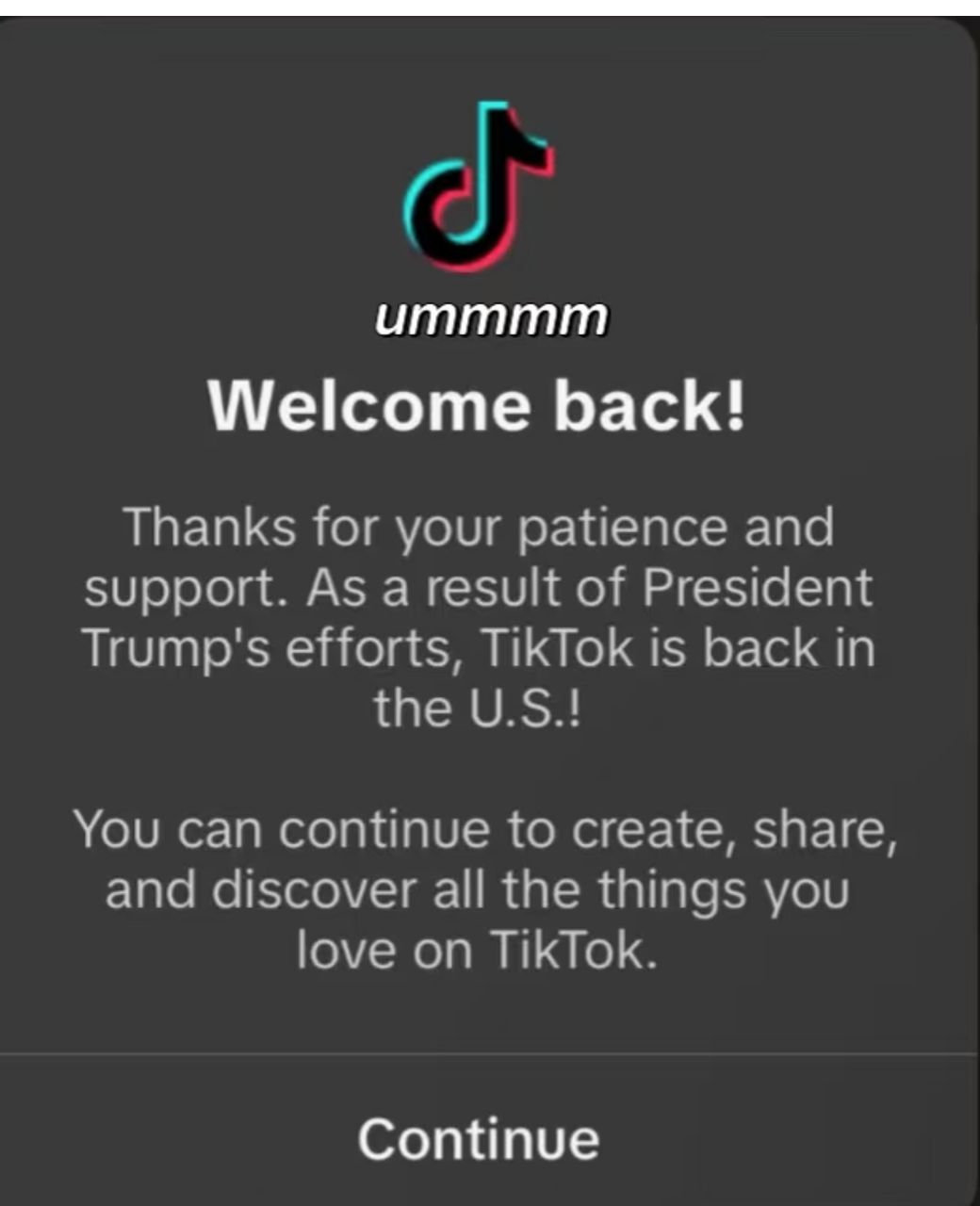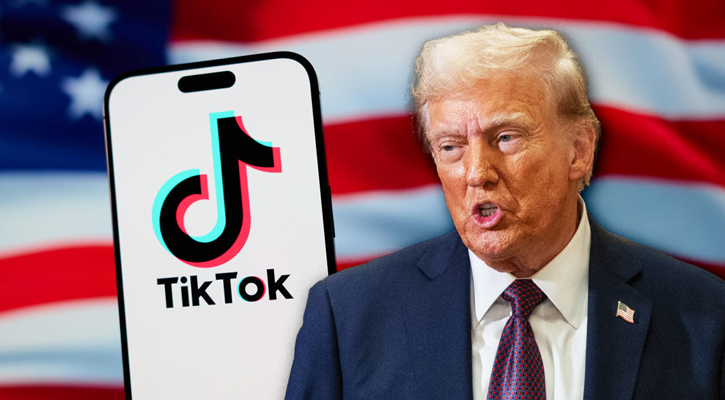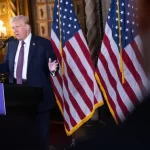By Nakiwala Barbra
TikTok has resumed services for its 170 million American users after President-elect Donald Trump promised to issue an executive order delaying the enforcement of a law banning the app on national security grounds.
The Chinese-owned platform had gone dark on Saturday evening after the law came into effect, prompting widespread concern among its users. On Sunday, Trump assured the public that his administration would extend the time frame for a resolution, allowing TikTok to restore access and begin discussions on a long-term solution. A popup message on the app thanked Trump for his intervention.
The platform’s parent company, ByteDance, had previously failed to comply with a law requiring it to sell its U.S. operations to avoid a ban. The Supreme Court upheld the legislation last week, leaving TikTok with no choice but to suspend its operations. However, Trump’s pledge to delay the ban marks a significant reversal from his earlier support for removing TikTok from the U.S. market. The president-elect claimed that his videos’ popularity on the platform during the last campaign influenced his change of heart.
TikTok’s swift return has drawn mixed reactions from lawmakers and legal experts. While Trump’s executive order may temporarily protect the platform, its legality is under scrutiny. The law allows for a 90-day postponement if substantial progress is made on addressing national security concerns, but it is unclear whether TikTok meets these criteria. Some lawmakers, like Senator Tom Cotton, have warned companies against supporting TikTok, citing potential legal liabilities under the existing ban.

The controversy has also exposed divisions within the Republican Party on national security policy. Trump’s pick for Secretary of State, Marco Rubio, who had previously backed the ban, expressed support for the president-elect’s decision, stating he would defer to Trump’s judgment if confirmed. On the other hand, critics argue that an executive order cannot override the law retroactively, leaving TikTok’s long-term future uncertain.
TikTok’s return has reignited debates over its potential influence on U.S. users and security risks. The platform, which has become a popular tool for political campaigns and social media influencers, remains under threat of localized bans by individual states or lawsuits. Hosting services like Google and Apple have yet to clarify their stance on reinstating TikTok in their app stores, further complicating its status in the country.
Legal experts have emphasized the importance of a collaborative approach between the incoming administration and Congress to resolve the issue. While Trump has promised to shield companies from liability in supporting TikTok, questions remain about the platform’s ability to address national security concerns and regain full operational stability in the U.S. The matter is likely to remain contentious, as the administration navigates legal, political, and public opinion challenges.








